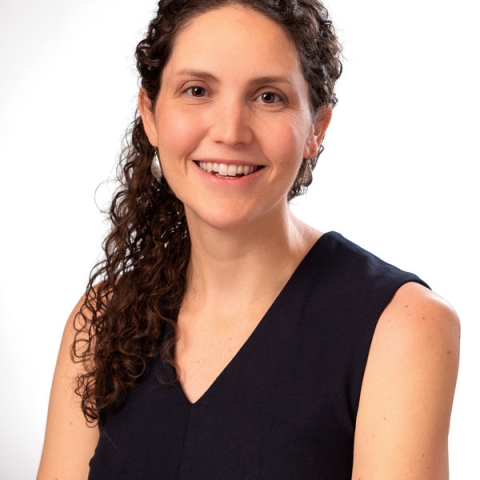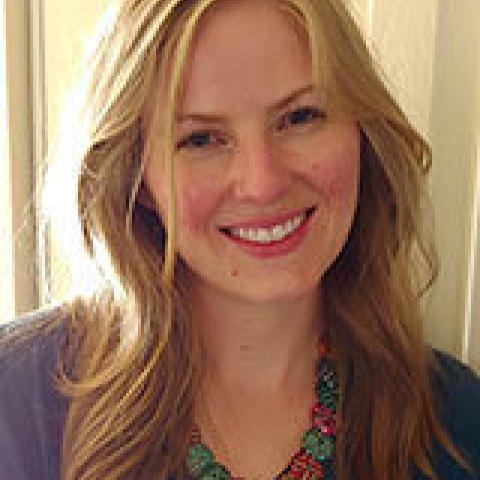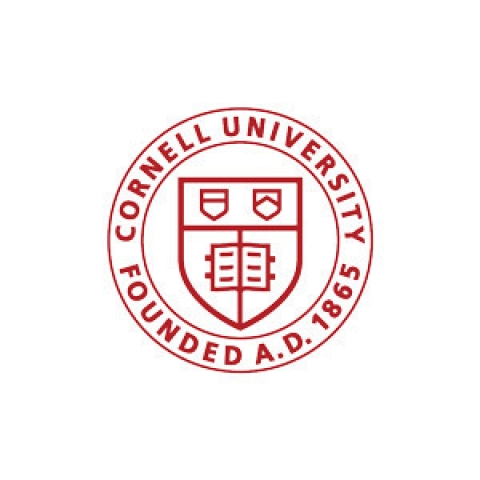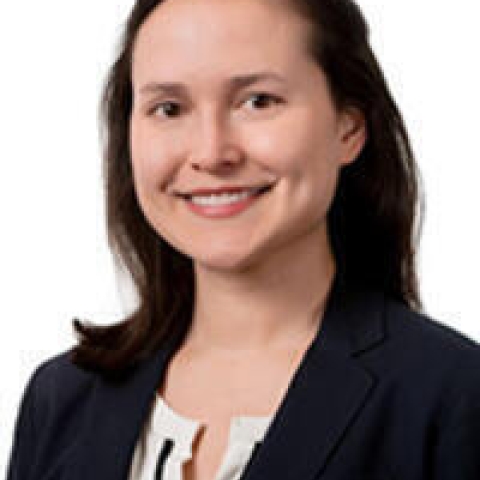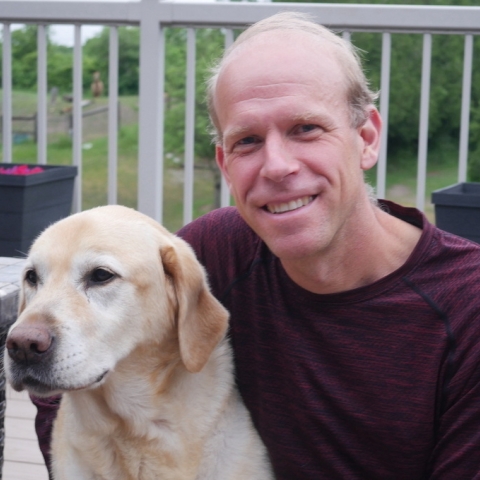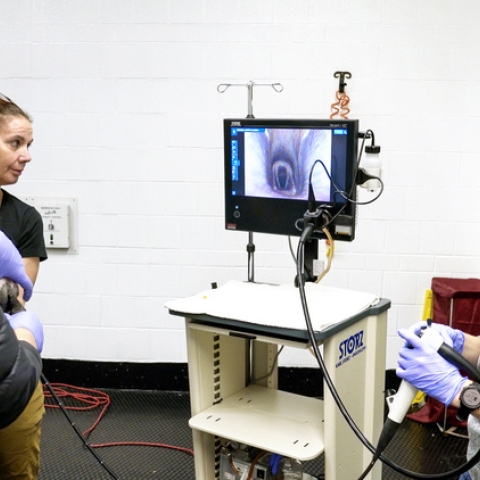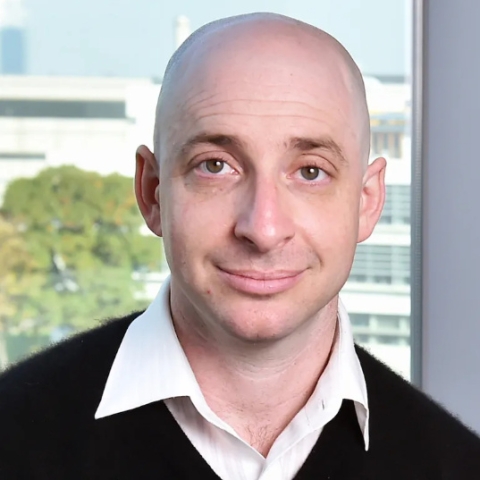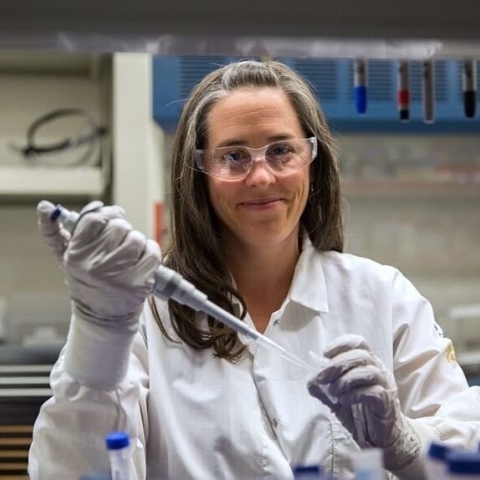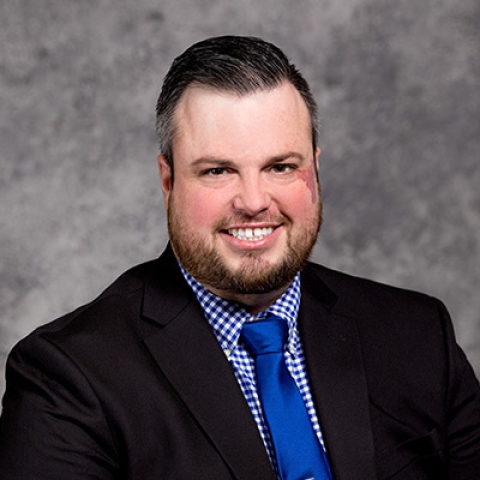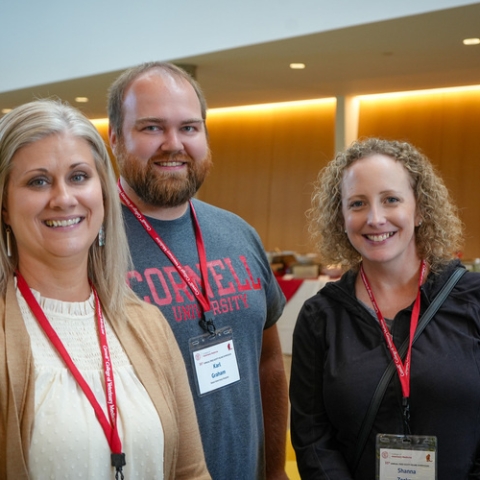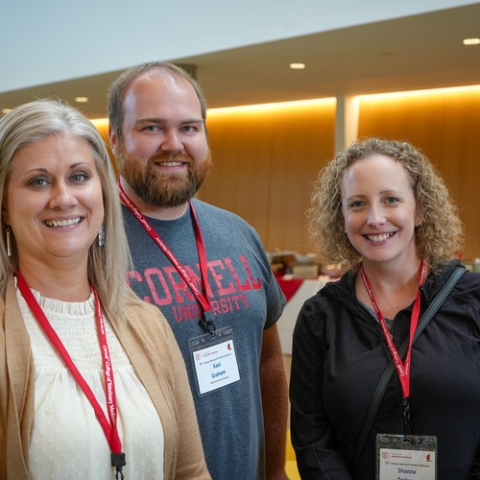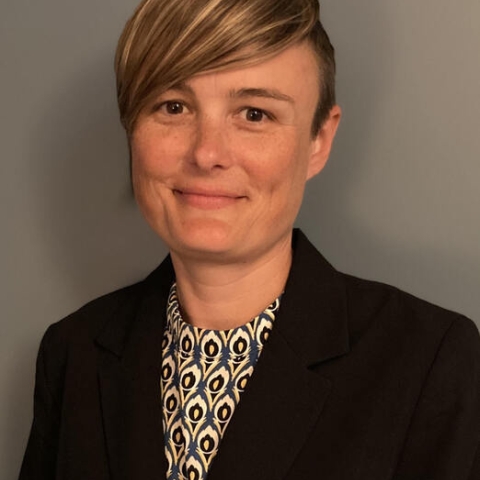Past Events
Full listing
Title: "The Two Antagonistic Pathways, Type I Interferon and Inflammasome/Gasdermin D, Control the Severity of Schistosome Immunopathology"
By: Dr. Parisa Kalantari, Pennsylvania State University
Cornell Center for Antimicrobial Resistance Research & Education Fall Seminar Series 2024
An economists approach to AMR: Ideas for feedback
Dr. Schofield will discuss how economists approach to antimicrobial resistance research including the use natural experiments and considerations around spillovers and externalities. She will also highlight a few early stage ideas using these approaches for feedback.
Heather Schofield Bio:
Dr. Heather Schofield is an Assistant Professor in the SC Johnson College of Business at Cornell University. She is an economist studying development, health, and...
The New York State Veterinary Conference will be held October 5-7, 2024! This three-day interactive event promises top-notch Continuing Education credit opportunities.
Join us for this engaging experience, co-hosted annually by the Cornell University College of Veterinary Medicine and the New York State Veterinary Medical Society. We're thrilled to present the Hybrid event once again, offering on-site, online, and on-demand experiences to cater to diverse preferences.
Take it from one of our attendees who said, "I love the onsite and online access, and ability to participate both ways. The...
The New York State Veterinary Conference will be held October 5-7, 2024! This three-day interactive event promises top-notch Continuing Education credit opportunities.
Join us for this engaging experience, co-hosted annually by the Cornell University College of Veterinary Medicine and the New York State Veterinary Medical Society. We're thrilled to present the Hybrid event once again, offering on-site, online, and on-demand experiences to cater to diverse preferences.
Take it from one of our attendees who said, "I love the onsite and online access, and ability to participate both ways. The...
The DeeDee Arrison Concert for the Animals is an annual event dedicated to celebrating our love for the animals in our lives, past and present. World-renowned violinists Tim Fain and Francisco Fullana will be accompanied by pianist Robert Koenig. There is no better way to experience the power of music for healing and as a heart-warming tribute to pets. Bring your well-behaved furry friend and join other animal enthusiasts. This event is free and open to the public. Register to attend in person or online: https://www.vet.cornell.edu/deedee-arrison-concert-animals
Cornell Center for Antimicrobial Resistance Research & Education Fall Seminar Series 2024
“State of the World’s Antibiotics in 2024”
Ramanan Laxminarayan Bio:
Ramanan Laxminarayan is the founder and president of the One Health Trust, founded as the Center for Disease Dynamics, Economics & Policy (CDDEP). He is a senior research scholar at Princeton University. He is an affiliate professor at the University of Washington, senior associate at the Johns Hopkins Bloomberg School of Public Health, and a visiting professor at the University of Strathclyde in Scotland. Dr. Laxminarayan chairs the...
Title: "Phylodynamic Reconstruction of Viral Outbreaks"
By: Dr. Louise Moncla, University of Pennsylvania School of Veterinary Medicine
The Department of Population Medicine and Diagnostic Sciences presents “Inflammation in the CNS: Clues in the Pink Wasteland” by Dr. Elena Demeter, Assistant Clinical Professor in Anatomic Pathology, on Wednesday, September 25, 2024 from 8-9 a.m. in Paddock Lecture Hall 2 (S1-165).
Title: "Redox Regulation of Host-Microbe Interactions"
By: Dr. Stavroula Hatzios, Yale School of Medicine
Cornell Center for Antimicrobial Resistance Research & Education Fall Seminar Series 2024
Questions, misconceptions and dogma: Addressing antimicrobial use and resistance in animals
This presentation will highlight a range of issues pertaining to antimicrobial use in animals, focusing on areas where there are common misconceptions or oversimplification of the issues. With a broad scope from antimicrobial use in individual animals to recent global antimicrobial stewardship activities, this presentation will bridge science, communications and advocacy efforts that aim to address the wicked...
This seminar will describe laparoscopy, one of the major minimally invasive or "keyhole" surgery techniques used in equine veterinary medicine. The advantages of laparoscopy will be described, and candidates for this type of surgery highlighted. Additionally, the limitations of laparoscopy will be discussed. Find out when and why to consider laparoscopy for your horse!
Presented by Rebecca McOnie, DVM (Cornell University College of Veterinary Medicine)
Title: "How Lessons From Animal Mucus Led to Glycan-Binding Broad Spectrum Antivirals"
By: Dr. Adam Braunschweig, City University of New York (CUNY)
Title: "Structure-Guided Design of Vaccines"
By: Dr. Rebecca DuBois, University of California, Santa Cruz
The departments of Population Medicine & Diagnostic Sciences and Public & Ecosystem Health present the Teaching Dairy Seminar, "Veterinary medicine across the pond, not oceans apart" by Dr. Steven Van Winden, Associate Dean & Associate Professor at the Royal Veterinary College in London, United Kingdom on Wednesday, August 21st from 2:30 p.m. to 3:30 p.m. in the College of Veterinary Medicine's Lecture Hall 3 (T1-003).
Quality Milk Production Services in the Animal Health Diagnostic Center, Department of Population Medicine and Diagnostic Sciences, presents "Developing strategies to improve mammary gland health in dairy cattle", by Dr. Turner Swartz, Assistant Professor in Dairy Production at South Dakota State University on Thursday, August 1 from 11 a.m.-12 p.m. in Powell Classroom 6 (S1-222).
This year’s 36th hybrid (in-person and virtual) iteration of what has become widely known as a premier feline veterinary continuing education experience promises to live up to and exceed the high expectations that we always set for ourselves on behalf of our dedicated attendees.
With keynote presentations by Dr. Jody Lulich, director of the Minnesota Urolith Center and world renowned expert on feline nephrology and urology, and informative sessions that will include common feline toxicities, the rapidly evolving world of feline coronaviruses, advances in feline perianesthetic pain management...
This year’s 36th hybrid (in-person and virtual) iteration of what has become widely known as a premier feline veterinary continuing education experience promises to live up to and exceed the high expectations that we always set for ourselves on behalf of our dedicated attendees.
With keynote presentations by Dr. Jody Lulich, director of the Minnesota Urolith Center and world renowned expert on feline nephrology and urology, and informative sessions that will include common feline toxicities, the rapidly evolving world of feline coronaviruses, advances in feline perianesthetic pain management...
Quality Milk Production Services in the Animal Health Diagnostic Center presents “A sustainable dairy future: expanding "carbon tunnel vision” through the eyes of a milk quality and welfare professional” by Dr. Amy Vasquez, Senior Manager for Quality and Care, Danone, at Horizon Organic Dairy, LLC on Thursday, July 25 at 9:30am in Classroom 7 (S1-226).
A free lecture presented by Dr. Kathryn Fiorella, Assistant Professor, Cornell’s Department of Public & Ecosystem Health
Fish are touted as sustainable and nutritious, but growing global demand for fish and expanding aquaculture are quickly reshaping these food systems. At the same time, our global freshwaters are experiencing the most dramatic falls in biodiversity and wild fisheries will continue to be a major source of food. As aquatic food systems and environments are revamped, what does that mean for the people who live and work within these systems? How does it impact their choices about...




